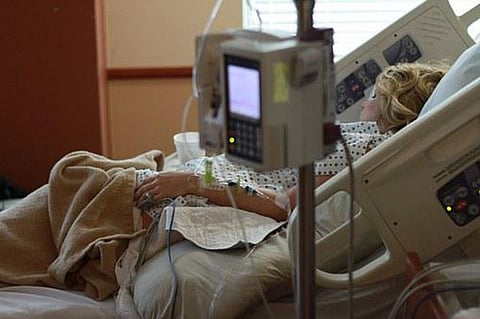Smoke and flame are seen during an Israeli airstrike in Gaza, March 15, 2019. VOA
Brig. Gen. Ronen Manelis, the chief Israeli military spokesman, said the army had been caught off guard by Thursday night's rocket barrage and had no advance intelligence.
Israel holds Hamas responsible for all fire coming out of the territory. Hamas possesses a large arsenal of rockets and missiles capable of striking deep inside Israel.
But with Gaza's economy in tatters, the group has been seeking to preserve calm.
Militants deny Tel Aviv attack
Hamas denied responsibility for the attack on Tel Aviv, saying the rockets were launched when the group's military wing was meeting with the Egyptian mediators.
In an unusual step that indicated Hamas was attempting to prevent further escalation, the Hamas Interior Ministry said the rocket fire went "against the national consensus" and promised to take action against the perpetrators.
But Israel's military concluded that Hamas was responsible. In a statement early Friday, the army said "we can confirm" that Hamas carried out the rocket attack.
ALSO READ: Terrorists Attack Two Mosques of New Zealand, Nearly 50 Killed
Islamic Jihad, an Iranian-backed militant group that also has a large rocket arsenal, also denied firing the rockets. Smaller factions inspired by the Islamic State group also sometimes fire rockets, though it is unclear whether they possess projectiles capable of reaching Tel Aviv.
Earlier this week, Israel struck Hamas targets in Gaza in response to rocket fire on southern Israel, near the border. Late Thursday, local media said that Egyptian mediators left the territory. (VOA)


